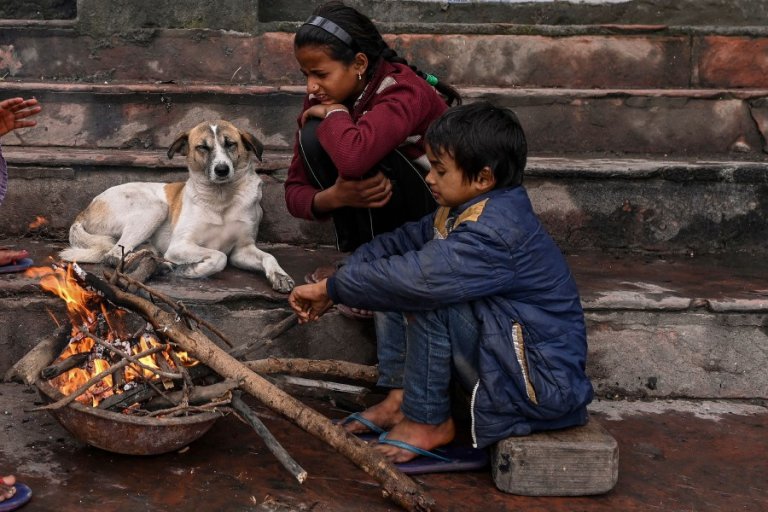As we mark International Day of Education today amid much idealistic but abstract rhetoric about the importance of education, we must acknowledge that in many ways, education today is in a state of crisis globally.
Due to the Covid-19 pandemic, schools have been closed for nearly 200 million children worldwide for almost a full year. In poorer countries, students were estimated to have lost 20 per cent or more of the total schooldays from their academic lifetimes.
Home-based remote learning cannot effectively replace the classroom environment. A clear decline can be seen in the learning progress of students forced to interact with computer screens instead of an in-person teacher and their classmates.
Reopening schools alone does not offset the damage done to this generation of students. An overwhelming majority of children whose schools have been completely or partially closed since 2020 spent fewer hours a day studying online than they did on frivolous pastimes online.
These two years have been inestimably detrimental to the development of successful learning habits. This will not only impact the future of the children, but the economic future of every nation.
Even before Covid-19 struck, education across the globe was facing many complications and challenges, both for basic schooling and higher education.
In a world where technological advancements are progressing so rapidly, experts predict that nearly half of all jobs performed by humans today will be automated within the next 10 to 15 years.
Ultimately, what should be the aim and focus of education for the young moving forward?
We have long believed, with reason, that education is the most crucial ingredient to lift individuals and societies out of poverty.
The way the world economy has functioned for decades means the higher someone’s education level, the higher their income — and it almost doesn’t matter what field they are pursuing.
Today, however, the global economy is turning scores of professional sectors obsolete as artificial intelligence, robotics and automation take over.
We can envision a future where highly educated people can find no productive role in the workforce. Then there is the fact that the world population currently has the oldest median age in recorded history, with an accompanying birth rate far below replacement levels in many parts of the world.
It is, therefore, of utmost importance that young people today receive not just an education, but the right education that will enable them to contribute to the development and sustainability of society and achieve their own financial security and wellbeing.
In the next 50 years, the world will not be able to provide work for the unskilled.
Children deprived of education in the 20th century still have many options to earn a living, but children in the 21st century who grow into adulthood without sufficient education will find themselves redundant before they even enter the workforce.
In our region, our populations are comparatively young — our birth rates ensure the existence of a stable supply of workers and professionals.
This, however, does not mean we can be lackadaisical in our approach to education.
Technology will still be replacing potentially millions of jobs throughout Asia, which means we could be facing a future where the unemployed could reach unprecedented numbers if our people do not have the expertise required to carve out a place in the economy.
Furthermore, many of the nations that have dominated the global economy in the past century will be in rapid decline over the next several decades.
The Global South, therefore, could be on the verge of decline if our populations are not educationally prepared to perform.
This year’s International Day of Education, themed “Changing Course, Transforming Education” calls for a broad movement involving governments, civil society, educators, students and youths to mobilise our collective intelligence and reimagine our futures together, building on acts of courage, creativity, care and resistance that each plant seeds of hope — all these must not remain as words.
This mission needs to be guided to become an impactful plan that moves bodies, transforms policies and develops agendas to prepare people for the future.
We are blessed and at the same time burdened by having to live through a transformative era in human history because as a global community and individual nations, we are at a crossroads.
How much we prioritise the education of our children — making sure education builds their minds, good character and spirituality and empowering them with knowledge and skills — will determine whether the path we pursue will lead to a better, or a worse, future.
Let’s make a difference today.
The writer is chief executive officer of Institut Masa Depan Malaysia, a Kuala Lumpur-based independent think tank that brings together experts in government and academia to provide quality research, policy recommendations and analysis on a full range of public policy issues guided by the shared prosperity values
The views expressed in this article are the author’s own and do not necessarily reflect those of the New Straits Times
Date: 24 January 2022
Image source: https://assets.nst.com.my/images/articles/ruehhrsf_1642953613.jpg
Source: New Straits Times – https://www.nst.com.my/opinion/columnists/2022/01/765510/education-pivotal-better-future?fbclid=IwAR2Kn_QfC7GF-n3jhfIU-cJk8kiNenxXIOe4uJGqKXlkUTawgkEcnUaUOac




